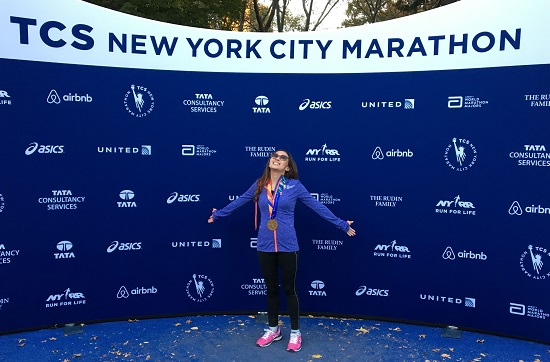
Jessica Wright
By Patricia Caso/January 2, 2017
It seems to me that every marathoner has a unique story to tell. This past year’s 2016 New York City Marathon was no exception. A dear friend told me about Jessica Wright (@jessywright), a 32-year-old American commercial-corporate lawyer who is working in Kabul, Afghanistan and trained to run the Marathon 6,730 miles away, in very challenging circumstances. To add to her intriguing story, as Jessica trained she found an outstanding cause to run for as well.
“I wanted to use my personal challenge to raise money for Free To Run, a group that uses the power of sports to help women and girls overcome the harmful effects of conflict and discrimination.” Jessica Wright
Through email, Jessica agreed to take time out of her busy schedule to give TWE a look into her demanding life. I still cannot fully understand what it took to undertake the marathon training, much less how, as a practicing lawyer, to maneuver the time. Bottom line: Jessica loves her job and loves to run!
EYE: First, how does a young successful lawyer from the Midwest find herself working in Afghanistan?
JESSICA:I studied foreign policy in grad school and international law (public and private) in law school, and was always particularly interested in the Afghanistan-Pakistan region. A friend told me about the opportunity as a lawyer at Rosenstock Legal Services in Kabul, so I applied, and was offered the job.
After many months of indecision, I decided to give it a try. I liked the idea of contributing to the development of the rule of law in Afghanistan by actually practicing law.
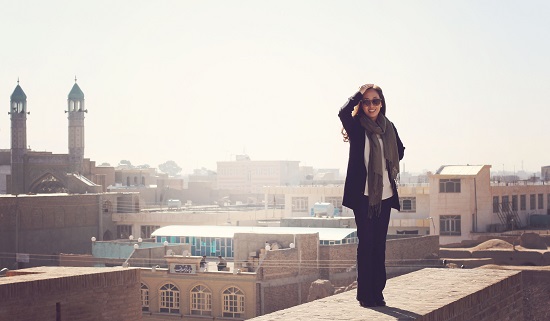
EYE: I read you started running in law school to help break up long study sessions at St. John’s University in New York City. How did you decide to go beyond your love of running to training in Afghanistan for the NYC marathon?
JESSICA: I’ve always wanted to train for a marathon, and had read articles about the benefits of training at a high altitude. I thought it would be good to have a fitness goal during my first year in Afghanistan. I also wanted to use my personal challenge to raise money for Free To Run.
It’s a group that uses the power of sports to help women and girls overcome the harmful effects of conflict and discrimination.
The organization works to provide safe spaces for running, fitness and outdoor adventure in conflict-affected communities where there is the greatest need, particularly for women and girls.
EYE: What exactly can sports do for Afghan women and girls who because of culture and gender are limited in participating in activities outside of their homes?
JESSICA: The core of Free to Run’s mission is about empowerment. On an individual level, sports like running can help to develop emotion and physical well-being, personal power and life skills. Free to Run believes sports programs can be used as a tool to promote gender equity, education, enhance children’s and women’s rights and address discriminatory practices.
They have successful operations in three of Afghanistan’s province as well as South Sudan. The idea that the power of sports can transform the lives of women and girls is what I support wholeheartedly.
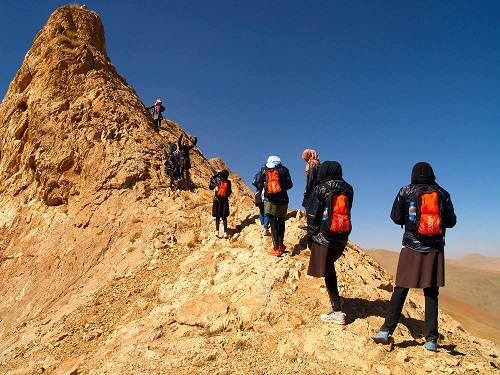
EYE: So, how did you train for the Marathon when the situation there is not exactly conducive to women participating in any sport?
JESSICA: I requested a treadmill as a condition for taking the Afghanistan job and trained almost exclusively on that treadmill upstairs in my colleague’s house. I had a 16-week plan and ran an average of 33 miles/week with the highest mileage week at about 50.
I do remember thinking on a number of occasions that I wouldn’t be able to hear a bomb blast or an attack while running because the treadmill was loud and I was listening to music and I was in the back of the house. My phone also didn’t have service.
Training almost exclusively indoors, I have to say it felt amazing to get in one outside run, but I had to wear baggy pants, a long tunic and a headscarf due to restrictions of women in public
EYE: Did you ever feel like just packing it in, when the practice got to the grueling stage, and not participating in the Marathon?
JESSICA: I didn’t feel like that until I got to New York. I arrived about a week and a half before the marathon, I was sick and tired and felt like I had overtrained. It also felt very different running outside; it took me some time to find my stride outdoors.
There was a point when I wanted to pull out because I didn’t think I was capable of doing it. I knew I was probably physically fit enough, but I was having trouble getting my head there. I was motivated by everyone who supported me monetarily with their friendship, training advice, encouragement, etc.
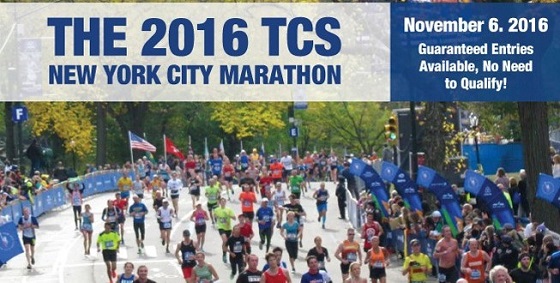
EYE: How did you feel at the end of the marathon?
JESSICA: It was such an amazing experience! The NYC marathon is, as they say, like one big block party. People were cheering and singing and dancing – pretty sure I was smiling the entire 26.2 miles. My time was 4:36. The Free to Run Team raised over $18,000. My goal was to raise $3,000 and I beat that!
EYE: Wow! It must have been very rewarding! Now, you are hard at work back in Afghanistan. What most intrigues you about the country and the people?
JESSICA: So many things. My interest started from a foreign policy perspective – it’s considered the “graveyard of empires” – but I think the tribal structure, the informal laws and customs, the food, and the language are interesting, too.
I recently traveled to Bamiyan in central Afghanistan where I was able to hike in the Hindu Kush. It was interesting to see the villages and the beauty of the interior of the country. We were warmly welcomed.
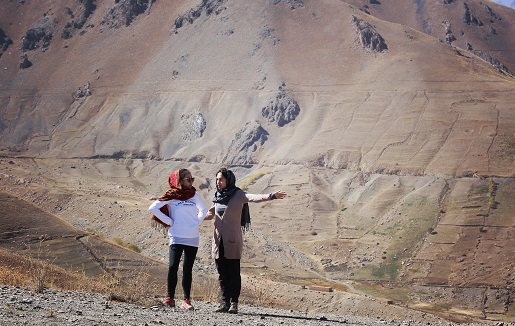
EYE: What most surprised you about the country and how your peers are treated?
JESSICA: I was pleasantly surprised by the warmth and generosity of the people. We see such negative things on the news. I work with young, liberal Afghans, so I haven’t really seen anyone ill-treated.
EYE: Regarding your daily routine, how do you handle the reality of violence and lack of respect for women in general?
JESSICA: This is a hard question to answer. Yes, there are bombings and kidnappings regularly, but we just go on about our business and try to live as normally as possible. We take precautions, of course, but otherwise, we do our work like we were in any other city.
It upsets me when I see news about the stoning of a woman for adultery or the sale of a child for property, but because those are not things I see first hand, I can’t say it’s really a part of my reality.
EYE: Have you had any instances when you feared for your life? How do you maintain your calm?
JESSICA: No, I haven’t had that experience. I’ve been afraid and on edge at times, but I have supportive people who are looking out for me. If I thought the situation was too unstable I could leave the country for a bit. We keep a low profile, which means we don’t drive around in armored cars or with a security detail.
We dress appropriately for the environment, which for women means wearing long tunics or dresses and headscarves. We don’t walk on the streets at all really — we have trusted drivers who take us from point A to point B.
EYE: You signed on for only one year. Why did you go back?
JESSICA: I have a lot of respect for my colleagues and the work they’re doing. The founder of the law firm, Thomas Rosenstock, is a big inspiration for me. He came here and started the firm on his own when no one else was providing legal services in Afghanistan.
He’s developed a thriving practice that is successful because he is dedicated to developing the rule of law and working ethically in a challenging environment.
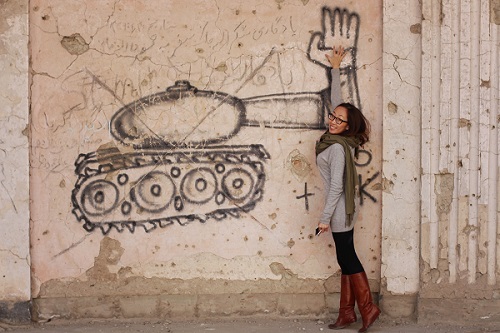
EYE: What do you think the world needs to know about women in Afghanistan?
JESSICA: The challenges women in Afghanistan face are well documented by the United Nations and other organizations. It’s a pleasure being here and getting to know Afghan women – I wish more people had the opportunity to do so. They’re definitely hopeful. Most of the young women I interact with have studied at university and want to see their country thrive. The young men are the same way.
EYE: What do you personally want to be able to do for women in Afghanistan?
JESSICA: Since moving to Kabul in September of 2015, I’ve had the opportunity to meet many brave and enthusiastic young women who are defying prevailing cultural norms. I hope my journey to and back from the Marathon will inspire them to keep pushing against the boundaries that circumscribe how fully they may live their lives.
My attitude is to “empower” women by mentoring young women lawyers, teaching students, and, of course, by staying involved with Free To Run. I want to be able to, in some way, inspire them to lead full lives, to set goals and work to achieve them.
I’ve always been interested in the MENA (Middle East and North Africa region) and South/Central Asia regions, so I guess doing something like this isn’t too far out. I love the challenge.
EYE: Do you have advice for young women and men who want to do the same work as you are?
JESSICA: Become a good lawyer, work hard, do what you’re passionate about, and don’t give up.
EYE: Finally, what is important to you as your career unfolds?
JESSICA: It’s difficult to understand a country like Afghanistan if you’re not here, on the ground, doing the work. It’s important to be persistent and to remain humble. I would like to help my law firm develop their practice here in Afghanistan, and perhaps in other countries.
Since I will be teaching as an adjunct at the American University of Afghanistan this coming spring, I hope to be able to help the university achieve its mission of providing quality education to some of the brightest and best students in Afghanistan. And, absolutely I’d like to run a half marathon this spring and a full marathon sometime in the fall again.
EYE: Jessica, you are remarkable! Thank you for taking time in your busy schedule to share your insights! Continued success to you and Free to Run!
###


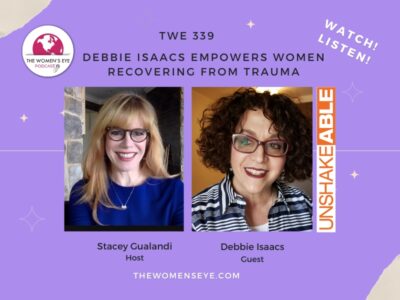
Leave a Reply